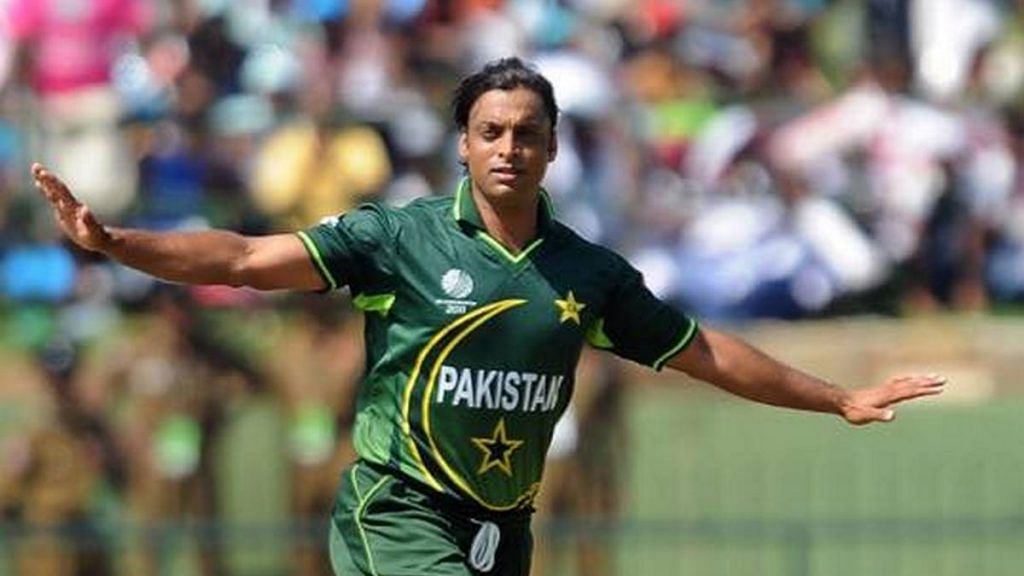There was a time when Pakistan’s cricketers were known to not wear their religion on their sleeves. But in the last two decades, the flamboyant lives of Pakistani cricketers took a turn in the opposite direction – from the likes of Majid Khan, Imran Khan, Zaheer Abbas and Asif Iqbal to the bearded culture of Saeed Anwar, Inzamam-ul-Haq and Mohammad Yousaf.
All hell broke loose when Shoaib Akhtar recently commented on the treatment meted out to Danish Kaneria because of his faith. His said a few players didn’t want to eat with Kaneria because he was a Hindu. Inzamam refuted Akhtar’s claims and refused to accept that Pakistanis have such small hearts. “Pakistanis have big hearts and we can accept everyone in our hearts,” said an emotional Inzamam.
While we don’t know about Inzi’s heart, Kaneria backed Akhtar’s statement and said he will name the players who often don’t talk to him because he is a Hindu. It is not the first time that a Hindu cricketer in Pakistan has raised the issue of discrimination by co-players. Pakistan’s first Hindu cricketer Anil Dalpat blamed Imran Khan for ruining his career.
Also read: Cricket, hijab, language: How the British, French and Americans conduct citizenship tests
No problem here
The issue of treating Pakistanis from non-Muslims backgrounds as ‘others’ is a deep-rooted problem in the country. The brainwashing begins when a child goes to a school and is taught: “The Hindu has always been an enemy of Islam.” Equating it with anti-India sentiment, Pakistani textbooks often vilify Hindus: “Hindu thugs massacred Muslims and forced them to leave India”; “The religion of Hindu never taught them good things”; or “Hindus worship in temples which are very narrow and dark places, where they worship idols. Only one person can enter the temple at a time. In our mosques, on the other hand, all Muslims can say their prayers together.”
So, when Pakistani batsman Ahmed Shehzad was caught on camera saying, “If you are a non-Muslim and you turn Muslim, no matter whatever you do in your life, [you will go] straight to heaven,” to Sri Lanka’s Tillakaratne Dilshan, it came as no surprise, because that is what he grew up learning probably. Then Shahid Afridi went on to say that he broke the television screen at this home when he saw his daughter imitate the ‘aarti’ ritual.
Amongst those offended by Shoaib Akhtar’s remarks was Mohammad Yousaf. He said that being a member of the Pakistani cricket team, he always received love and support from his team members. Notwithstanding Yousaf’s conversion to Islam from Christianity, his belief system always crops up in cricketing disagreements. Whether it is cricketer Ramiz Raja calling him a liar with a beard or Shahid Afridi saying that Yousaf is not a cricketer but a preacher, and a beard and topi doesn’t change a person from within. Sadly, the journey from making the sign of the cross to going down in sajda on the field won’t be testimony enough.
Also read: Even big men cry: How cricketers like Virat Kohli are batting for inclusive masculinity
In god’s hands
Cricket and showbiz have been a fertile ground for celebrity tableeghis (preachers) like pop singer Junaid Jamshed and actress Veena Malik. The influence of the tableeghi jamaat (party of preachers) on the cricket team in the early 2000s has made the glorious years in the 1980s and 1990s a distant memory. What we have now is a cocktail of sport, religion and politics.
While at home, the US-led War on Terror led to the Islamisation of the Pakistani cricket team, it is ironic that the policy of ‘enlightened moderation’ of General Pervez Musharraf was being sold to the West at the same time. It was for this reason that Musharraf had asked the chairman of the Pakistan Cricket Board to tell the cricketers to stop the overt show of religiosity and maintain a balance.
What started under Inzamam’s captaincy continues under his ‘selectorship’. The Pakistani team often visits preacher Maulana Tariq Jameel to get tips before a big tournament. World cricketers seek mentorship from the likes of Steve Waugh, but Pakistani players rather take religio-cricketing advice. They say that the Maulana tells them that everything is in the hand of god and they must just try their best. It is up to god to grant success or failure and it is not up to the players to get end results. Going by Pakistan’s cricket performance in 2019, clearly god is not pleased.
The author is a freelance journalist from Pakistan. Her Twitter handle is @nailainayat. Views are personal.
